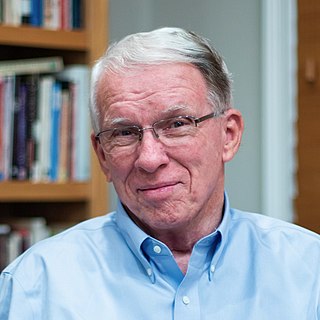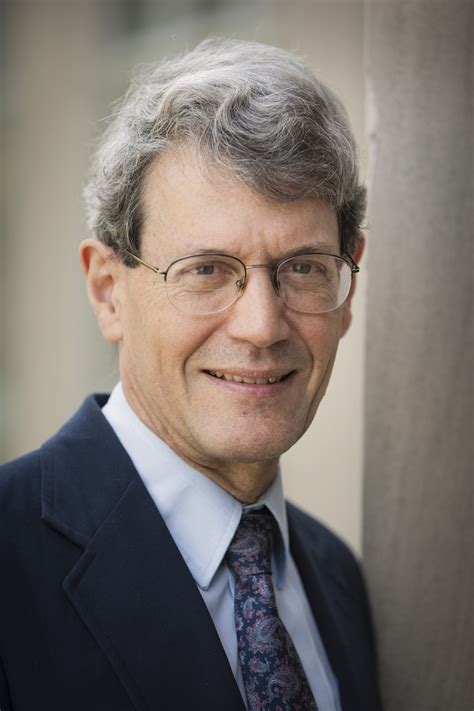A Quote by Michael S. Heiser
Scholarship aimed at truly understanding what the biblical writers meant often does not filter down into the church and through the pulpit to folks who show up on Sunday. I think that's just wrong, but scholars rarely make any effort to decipher their own scholarly work for people outside the ivory tower.
Related Quotes
It's important for people in the Church to realize that the way they talk and think about the Bible isn't the way Bible scholars talk and think about it - and I'm including "Bible-believing" scholars there. There is a wide gap between the work of biblical scholars, whose business it is to read the text of the Bible in its own worldview context, and what you hear in church.
Why are you uncomfortable with the supernaturalist worldview of the biblical writers? Evangelicals don't want to just say, "Well, the inspired writers were wrong about some of their beliefs about the spiritual world and its inhabitants." That really doesn't work in a confessional situation! So instead we come up with excuses and interpretations that allow us to remake the biblical writers in our own post-Enlightenment image. I understand that impulse, but it's not honest.
Anybody who has read any biblical scholarship knows that every scholar struggles over completely intractable problems with the original texts, or what they have to work from. It's one of the great, powerful, mysterious objects that have come down through history. This does not translate into literal interpretation for me.
I am an idealist. I often feel I would like to be an artist in an ivory tower. Yet it is imperative that I speak to people, so I must desert that ivory tower. To do this, I am a journalist - a photojournalist. But I am always torn between the attitude of the journalist, who is a recorder of facts, and the artist, who is often necessarily at odds with the facts. My principle concern is for honesty, above all honesty with myself.
The task of all Christian scholarship—not just biblical studies—is to study reality as a manifestation of God’s glory, to speak and write about it with accuracy, and to savor the beauty of God in it, and to make it serve the good of man. It is an abdication of scholarship when Christians do academic work with little reference to God. If all the universe and everything in it exist by the design of an infinite, personal God, to make his manifold glory known and loved, then to treat any subject without reference to God’s glory is not scholarship but insurrection.
The easiest method of acquiring the habit of scholarship is through acquiring the ability to express oneself clearly in discussing and disputing scholarly problems. This is what clarifies their import and makes them understandable. Some students spend most of their lives attending scholarly sessions. Still, one finds them silent. They do not talk and do not discuss matters. More than is necessary, they are concerned with memorizing. Thus, they do not obtain much of a habit in the practice of scholarship and scholarly instruction.
I think "Heroes of Cosplay" will show a lot of the positive things, like how much effort it takes to make a costume. These people on the show aren't taking shortcuts. As long as that effort gets through to the viewers, we will be inspirational. Then there will be people who watch the show that want to get in and hands-on make outfits.
I think 'Heroes of Cosplay' will show a lot of the positive things, like how much effort it takes to make a costume. These people on the show aren't taking shortcuts. As long as that effort gets through to the viewers, we will be inspirational. Then there will be people who watch the show that want to get in and hands-on make outfits.
I think I’ve always believed that there is one person in the universe who you’re truly meant for–for whom you are truly meant–and the fact that sometimes there are two or even more people on the earth you can fall in love with really bothers me. It suggests that if you work hard you can be meant for anyone.
I remember when Martin Luther King was assassinated and riots broke out in the city. We celebrated Palm Sunday on 14th Street. I have a memory of walking down the street with buildings smoldering, and soldiers and cops everywhere. Anyways, it [St. Stephen’s] was a church that really taught me the things I needed to learn to not go to church. But I think it is a church that does great work, I went to a wedding there three days ago.
Most people suffer from the self limiting dysfunction "rear-view mirror syndrome" driving through life with their subconscious mind constantly looking in their own self-limiting rear-view mirror. They filter every choice they make through the limitations of their past experiences. Always remember that your potential is TRULY unlimited, and that you are just as worthy, deserving, and capable of achieving everything you want as any other person on earth.






























